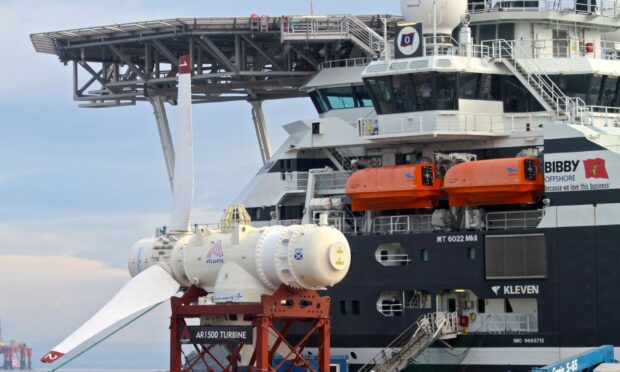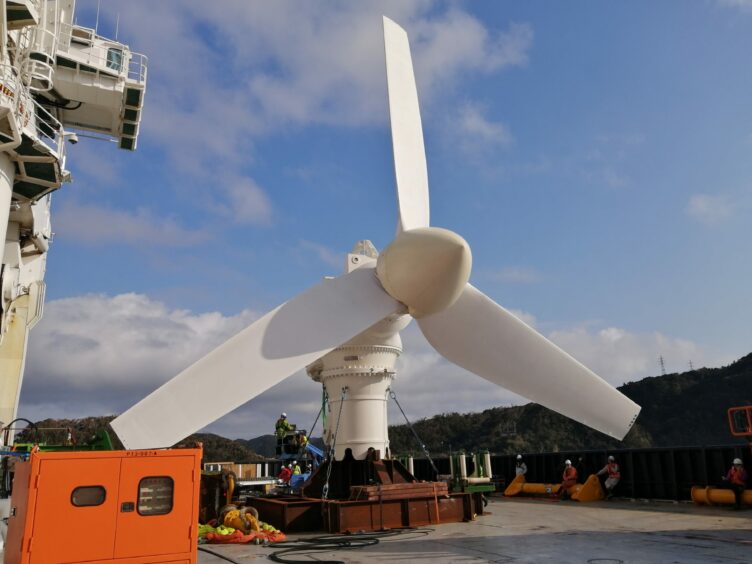Tidal energy developer Simec Atlantis Energy (SAE) suffered a plunge in the value of its shares as outages at its flagship MeyGen scheme in the Pentland Firth and the collapse of a key development project drove it further into the red.
SAE published its full-year accounts for 2021 on Wednesday revealing which showed pre-tax losses had spiralled to £74 million from the £19.4m lost in 2020.
Shares in the tidal developer eased back from a 50% drop, closing down 41.46% to 1.2p.
Revenue and other income for the year fell to £9.3m last year, down from £13.5m in 2020, while operating expenses ballooned above £80m.
Chairman Duncan Black described the past year as “a very challenging period” for the company, in which it faced a battle over the control of shares held by major shareholder GFG Alliance and poor financial performance as a result of outages at its MeyGen tidal project.
Three of its four tidal turbines were taken out of commission for most of the year as a result of technical issues, while a funding crunch delayed their redeployment.
As a result, the project generated revenues of £1.6m from power sales and renewable obligation certificates – nearly £1m lower than the previous year.
However, the company said it was “optimistic” that it would be able to secure revenue support to expand the project to “at least” its consented 86MW capacity, and ultimately reach the site’s full 398MW capacity.
This is buoyed by a £2.5m loan from Scottish Enterprise granted in April, which it said would support further turbine redeployment.
SAE attributed much of the headline losses to £32m of impairments taken following its decision in April 2022 not to proceed with a plan to convert the Uskmouth coal power station to run on waste fuel pellets.
In its annual report, the company said it maintained the rationale for the project, near Newport in Wales, was “compelling” but despite having completed considerable design and engineering work it was unlikely to be able to secure permit and planning consents.
It now hopes to build a “sustainable energy park” at the site and in May announced plans for a 230MW/460MWh battery storage project which would leverage the power station’s existing grid connection.
Notes on the company’s going concern highlighted other pressing debt issues.
In April the company asked crowd-funding platform Abundance Investment for more time to repay just under £5m in debentures due at the end of June 2022.
SAE said bond holders have now accepted a deferral of 12 months for the repayment of the principal to June 2023, and for a delay of three months on interest payments.
A further two bonds will mature in March 2023 and September 2024, and the firm said it may either seek to extend the repayment date or repay them via a refinancing deal for new debt, additional cashflows from the business, or by another equity raise.
In addition, SAE said it was in discussions with EU funders over the potential clawback of grant funding, which could see the company forced to repay a further £3.4m.
In a statement accompanying the report, chief executive Graham Reid commented: “We have been presented with many significant challenges, but I am incredibly proud that we’ve overcome most of these and I know we have the team, skills and assets in place to deliver long-term, sustainable growth for our business and our shareholders.
“2021 saw the Company make some difficult but important decisions. While these have had short-term impacts on the business and our financial statements, I am convinced they are the right decisions which will ultimately deliver value to shareholders in the medium to long term.”


Conversation